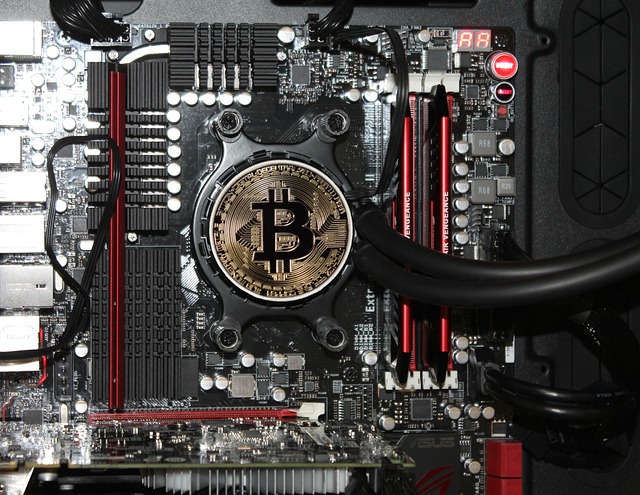Introduction
In the modern digital age, managing online identity and ensuring security has become a critical concern. Traditional identity systems often rely on centralized entities, which can be prone to data breaches and unauthorized access. Enter blockchain technology, which offers a groundbreaking solution to these challenges through decentralized and secure identity verification systems. Blockchain identity verification is not just a buzzword but a paradigm shift that promises to enhance security, privacy, and user control over personal data.

What is Blockchain Identity Verification?
Blockchain identity verification is the process of using blockchain technology to verify and authenticate digital identities. Unlike traditional methods that rely on centralized databases, blockchain provides a decentralized, immutable, and secure way of managing identity data. This ensures that individuals have full control over their personal information, reducing the risk of identity theft, fraud, and data manipulation.
How Does Blockchain Identity Verification Work?
The core principle behind blockchain identity verification lies in its decentralized nature. When a person’s identity is verified, the data is encrypted and stored on a blockchain. Unlike conventional systems that store personal data in centralized repositories, blockchain records this data across a network of computers, making it nearly impossible to alter or access without proper authorization. Here’s how it works:
- User Enrollment: The process starts when a user registers their identity on a blockchain platform. The user provides personal details (such as their name, birthdate, and biometric data), which are then encrypted and stored on the blockchain.
- Verification Process: When an individual tries to authenticate their identity, the system checks the blockchain for a match. Since the blockchain is immutable, once data is entered, it cannot be altered or deleted, ensuring the integrity of the identity.
- Authentication: In the verification process, users may be asked to provide additional credentials, such as a fingerprint, facial recognition scan, or other forms of biometric verification. These biometrics are then validated against the blockchain’s stored records.
- Decentralized Control: Users have control over their data, meaning they can approve or deny access requests based on their preferences. This self-sovereign approach to identity verification empowers users to take control of their personal information.
Benefits of Blockchain Identity Verification
1. Enhanced Security and Privacy
Blockchain’s encryption and decentralization make it an ideal solution for enhancing security. Since the identity data is stored in a distributed ledger, it is far less susceptible to hacking, data breaches, or unauthorized access. Additionally, blockchain’s cryptographic protocols ensure that sensitive information is protected through robust encryption techniques.
Moreover, blockchain identity verification systems are designed with privacy in mind. Users control who accesses their data, providing a higher level of privacy than centralized identity systems that store information on vulnerable servers.
2. Reduced Fraud and Identity Theft
Blockchain’s immutable nature plays a significant role in preventing fraud and identity theft. Once data is entered into the blockchain, it cannot be tampered with or altered. This makes it almost impossible for malicious actors to falsify or manipulate identity records, ensuring that the individual’s digital identity remains secure.
3. Improved User Experience
Blockchain identity verification provides a smoother, more streamlined user experience. Instead of remembering numerous usernames and passwords for different services, individuals can use their blockchain-based identity to authenticate themselves quickly and securely. This process reduces friction and improves overall efficiency, making online interactions more seamless.
4. Self-Sovereign Identity
One of the most significant advantages of blockchain identity verification is the concept of self-sovereign identity. With this approach, individuals have complete control over their identity and can share only the necessary information with third parties. This reduces the reliance on intermediaries and central authorities, allowing users to maintain greater autonomy over their personal data.
5. Cost-Effective
By eliminating the need for centralized identity management systems, blockchain identity verification can reduce the costs associated with data storage, management, and security. Moreover, the decentralized nature of blockchain reduces the need for third-party verification services, which can be expensive and time-consuming.
Challenges in Blockchain Identity Verification
While blockchain identity verification offers numerous benefits, there are still challenges to be addressed.
- Scalability: Blockchain networks, particularly public ones, can sometimes face scalability issues, which can affect the speed and efficiency of identity verification processes.
- Regulatory Compliance: The legal and regulatory framework for blockchain-based identity verification is still evolving. Governments and organizations must ensure that these systems comply with existing data protection and privacy laws.
- User Adoption: For blockchain identity verification to become widespread, it requires a significant shift in how people and businesses think about digital identity. The adoption of this technology will depend on user education and the availability of user-friendly platforms.
- Interoperability: For blockchain identity verification to be effective, it needs to be compatible with various platforms and services. Ensuring interoperability across different blockchain networks and systems is crucial for the success of this technology.
The Future of Blockchain Identity Verification
The future of blockchain identity verification looks promising. As more industries recognize the importance of secure digital identity management, blockchain technology will likely play a central role in shaping the future of online authentication. Additionally, advancements in blockchain scalability, regulatory clarity, and user adoption will contribute to the widespread adoption of this technology.
In the coming years, we can expect blockchain-based identity verification systems to become increasingly sophisticated, offering more robust and efficient solutions for securing online identities. Whether it’s for banking, healthcare, social media, or government services, blockchain identity verification has the potential to revolutionize how we prove who we are in the digital world.